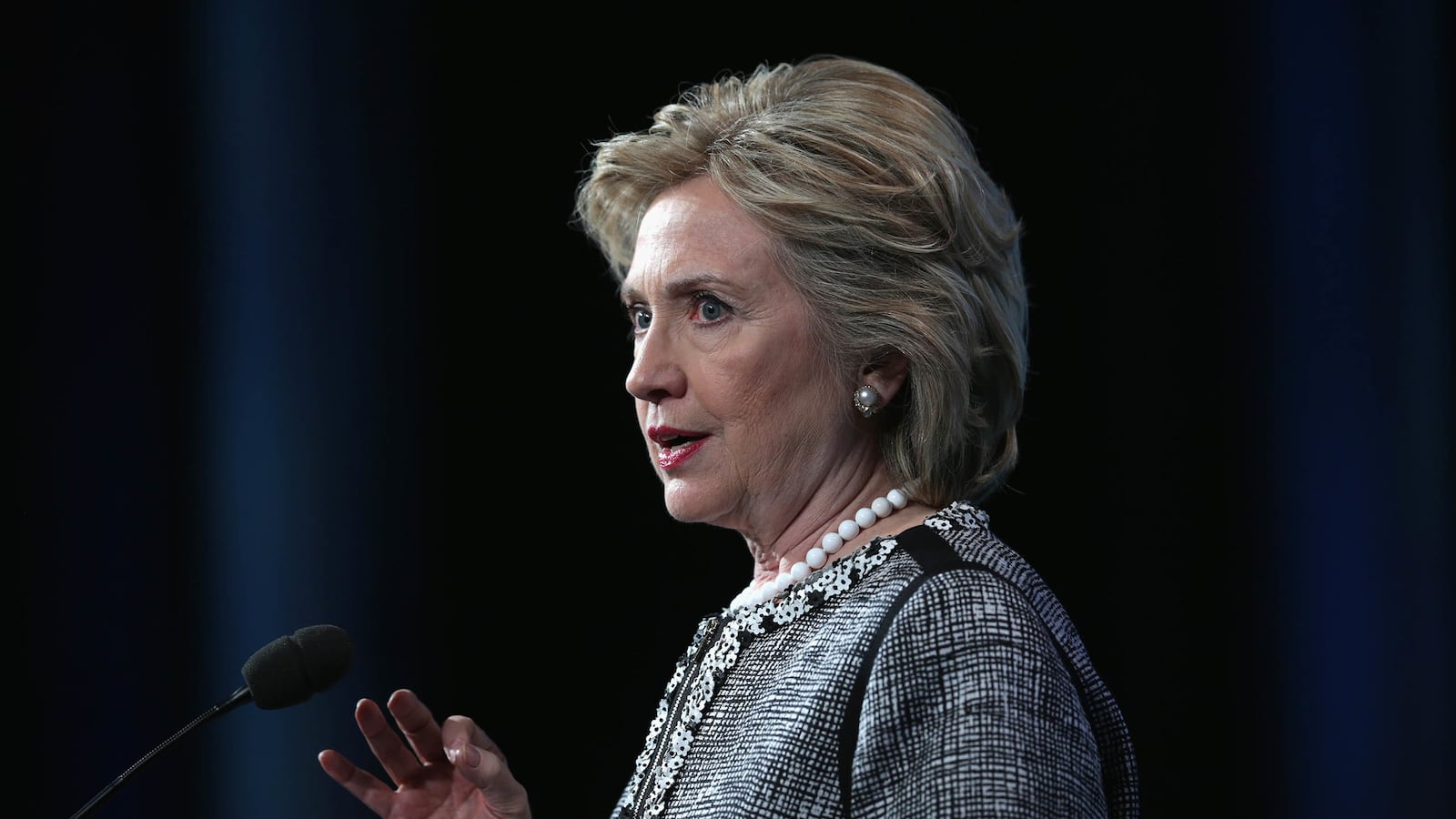I see by the papers—make that Politico’s “pixels”—that Governor Chris Christie will speak at a major conservative “pro-family” group on June 20. In appearing before Ralph Reed’s “Faith and Freedom Coalition” gathering in Washington, Christie—according to a “longtime Republican strategist”—is signaling that he’s serious about seeking the nomination in 2016, and that he’s not going to concede evangelical or pro-family voters to others.
For a Northeastern more-or-less-moderate Republican, this courting of the right is a familiar path. Mitt Romney actively and expensively courted Iowa’s evangelicals in 2008 and 2012. So, sure, if you’re contemplating a run for the GOP nomination, you’re going to have to be at least acceptable to what Reed likes to call “faith-based conservatives.”
But here’s the question I’ve been asking for years: Why hasn’t Hillary Clinton appeared before the Faith and Freedom Coalition—or the Family Research Council’s “Values Voters’ Summit,” headed by Tony Perkins—or any group with a similar focus?
Yes, these and other groups are in reality as closely tied to the Republican Party as the AFL-CIO is to the Democrats. But as a matter of law, these tax-exempt organizations do maintain a pro-forma nonpartisan posture. And therein lies a target of opportunity for Clinton…assuming she’s willing to take the risk of speaking a lot more directly about the most sensitive part of her life.
Does this sound fanciful? Well, think about Franklin Roosevelt appearing before the Daughters of the American Revolution in 1938—an organization that had barred a Negro singer from appearing in its building, and that reflected snobbish hostility to every wave of immigrants—and telling them: “Remember, remember always that all of us, and you and I especially, are descended from immigrants and revolutionists.”
Think about John Kennedy in September, 1960, appearing before the Greater Houston Ministerial Association and answering a series of often highly hostile questions about whether a Catholic could serve as President while being faithful to his religion.
Think about Ronald Reagan appearing before the Urban League in August 1980—his first major speech as the Republican nominee—and offering his mostly black audience an indictment of the failure of liberal policies to combat joblessness and poverty.
So what might Clinton say in such a venue?
“Look,” you can imagine her saying. “We have deep, profound differences across a lot of issues—abortion, same-sex marriage, the role of the federal government. If I run for president, the only votes I’ll be likely to get in this room are from the waiters and the custodial staff.
“But those differences are about policy—they are not about the importance of family to the health of a nation. Like many of you, I believe the family is under assault from the culture, which makes the job of parents harder. When I called a book I wrote It Takes a Village, some of my detractors thought this was a plea for government-controlled child-rearing. It was, to the contrary, a recognition that the work of a parent is made much less difficult when the community at large is embracing values like honesty, diligence, responsibility.
“You and I might—make that do—disagree about what will make families stronger. In a society where two working parents is the norm, and where single-parent households are all too common, I don’t see child care as a threat to parental rights—I see it as a way to ease the daily stress of a working parent. But OK, we disagree.
“Does that mean I don’t see the value of a stable, two-parent family? Let me be very, very personal here. Some years ago, I faced a crisis in my marriage—perhaps you are familiar with this fact. Millions of Americans—including many who have held and do hold high political office—made the choice to end their marriages. I chose a different path. I was determined, along with my husband, to do everything I could to hold my family together. And we did. It was an intensely private path—but I take some satisfaction that it may have encouraged others facing trouble in their marriages to repair the breach.”
She might even conclude by noting what has happened to teenage pregnancy, the crime rate, and other “leading social indicators” under the last two Democratic presidents.
Would she change minds in the hall? Highly unlikely. Would she help rebut the idea that she’s a risk-averse, over-programmed political figure? That’s my hunch.






